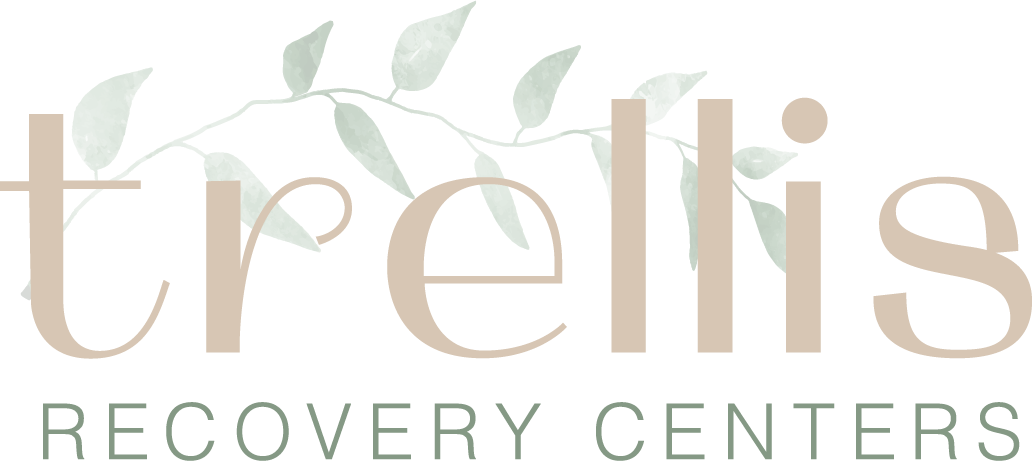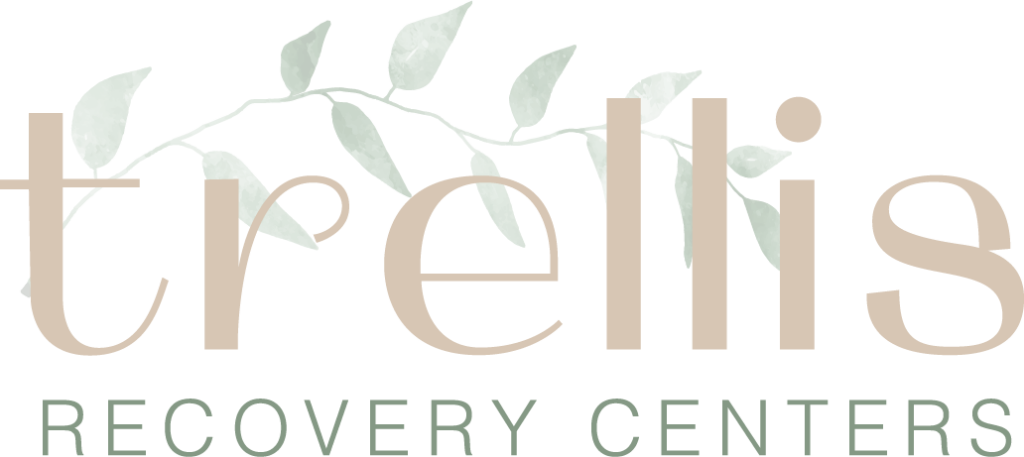Bulimia Nervosa is a well-known yet often misunderstood eating disorder experienced by 1.2% of adults and 2.7% of adolescents in the United States [1]. Those struggling with bulimia nervosa are often misunderstood because their behaviors can be shocking and confusing to those that do not experience them. What many do not understand is that these behaviors are also conflicting to those that use them. These individuals are often seeking something, such as comfort, control, relief, or acceptance. At Trellis Recovery Centers we are committed to providing compassionate support for those suffering with bulimia to explore their behaviors and find more effective, and less harmful, ways of achieving their goals. Learn about our bulimia treatment centers in Los Angeles, California today.
Request a Confidential Callback
You have reached the maximum form entries. To contact our admissions team, please call 818-696-5639
What is Bulimia Nervosa?
Bulimia Nervosa is a diagnosis characterized by episodes of binge eating that are followed by compensatory behaviors. Binge eating involves an individual eating more than the average person would in a similar period of time under similar circumstances. Those with bulimia nervosa will do this then engage in behaviors intended to prevent weight gain from the binge. Some of these behaviors may include:
- Purging via self-induced vomiting, laxatives, and/or diuretics.
- Compulsive and/or excessive exercise.
Those struggling with bulimia nervosa are also hyperfocused on their body weight, shape, and size and their self-view is impacted by this. At Trellis Recovery Centers, our Los Angeles treatment programs for bulimia help individuals change their focus towards more productive and beneficial goals.
Signs & Symptoms of Bulimia Nervosa
If you are concerned that you, or your loved one, are struggling with bulimia nervosa, there are some symptoms that can be red flags:
Physical
- Weight fluctuations.
- Chronically inflamed or sore throat.
- Worn tooth enamel/yellowing teeth.
- Non-specific gastrointestinal issues
- Dehydration
- Electrolyte imbalance
- Appearing bloated from fluid-retention
- Scars on the tops of knuckles or hands from self-induced vomiting (Also called “Russel’s Sign”)
- Red eyes and/or bursting of blood vessels in eyes from vomiting
- Puffy cheeks
Behavioral
- Withdrawal from family and friends, especially in situations related to food.
- Going to the bathroom during and/or after meals.
- Drastic changes in eating behaviors.
- Negative body image and/or self-view.
- Expressing shame and/or guilt around eating.
- Fixation on body weight, shape, or size.
- Hiding food.
- Buying and/or hoarding laxatives, diuretics, etc.
- Drinking excessive amounts of water.
- Increased irritability and/or feelings of depression.
- Increased suicidal ideation.
- Difficulties with impulse control.
- Brain fog and difficulty concentrating.
Dangers of Bulimia
As the symptoms above make clear, bulimia nervosa causes severe damage to the body and mind. Without treatment, these behaviors can lead to serious consequences such as:
- Digestive issues.
- Cardiovascular issues such as irregular heartbeat, heart attack, or heart failure.
- Gum disease.
- Tooth decay/loss.
- Organ damage/failure.
- Low bone density.
- Osteoporosis.
- Osteopenia.
- Irregular menstrual cycles and/or fertility issues.
- Ulcers in the lining of the intestine.
- Worsening mental health symptoms such as depression, anxiety, suicidal ideation, etc.
- Bowel perforation
- Chronic acid reflux.
- Esophageal cancer.
- Death due to medical issues mentioned above or increased suicidal ideation.

Why Go to Treatment for Bulimia?
The dangers listed above make it clear why receiving treatment for bulimia nervosa is so important: without intervention, the body is not capable of sustaining functioning alongside bulimia nervosa behaviors. The good news is that research is clear that early intervention for bulimia nervosa behaviors not only supports an increased likelihood of recovery but a healing of the body. The human body is an incredible machine that is self-healing. Attending bulimia nervosa treatment at Trellis Recovery Centers in Los Angeles, CA can lead to weight restoration, a nourished body, and a healed relationship with food and the body. The wounds left by bulimia nervosa behaviors do not have to last forever.
How Do Bulimia Treatment Centers in Los Angeles Work?
The most effective treatment for bulimia nervosa involves a multi-disciplinary approach that includes practitioners from many disciplines. At Trellis Recovery Centers, our care includes support from a licensed Therapist, Registered Nurse, Registered Dietitian, Psychiatrist, and Medical Doctor, all of whom are eating disorder trained and Health At Every Size and Intuitive Eating informed.
Our Los Angeles treatment centers for bulimia will include the most effective evidence-based therapies such as Cognitive Behavioral Therapy, Dialectical Behavioral Therapy, Exposure & Response Prevention, & Somatic Therapies all of which are utilized in individual therapy, family therapy, and psychoeducation and process groups.
Our Trellis Team is committed to providing a supportive yet boundaried approach to treatment that allows each individual to feel held by Staff while also being encouraged to find, within them, the power that they have to recover. Clients will experience meal, clothing, and mirror exposures as well as community outings that help them to face that which frightens them most with the help of our team and learn to cope with these fears effectively in their own way without their eating disorder.
Benefits of Our Los Angeles Bulimia Treatment Centers
There are numerous eating disorder treatment centers that can provide support for bulimia nervosa, however, Trellis Recovery Centers utilizes a unique approach to provide effective and well-rounded care here in Los Angeles, California.
At Trellis, we focus on the psychological, nutritional, and medical aspects of eating disorders equally. This means that those that receive our treatment will be provided with education and supported in exploration of each of these areas and leave our care with the understanding that each area must be addressed and considered not only in eating disorder treatment and recovery but in life.
For those struggling with bulimia nervosa, the emphasis on these 3 areas is critical. As discussed above, the damage bulimia nervosa can do to one’s nourishment and, therefore, physical body is severe. Trellis provides the client, as well as their support system, with weekly check-in from a Registered Nurse to receive updates on labs and vitals as well as psychoeducation and discussion of what these, and other physical symptoms, mean for the client’s physical well-being.
Our eating disorder informed Registered Dietitian will meet with every client at least 3 times per week to discuss and explore their relationships with their bodies, food, movement, and bulimia behaviors. Clients will learn how compensatory behaviors impacts their nourishment and how they can develop a more positive relationship with food.
Eating disorder educated and trained therapists will meet with each client for 2 individual therapy sessions and 1 family therapy session per week, allowing time to go beyond the symptoms of their bulimia behaviors to the beliefs and feelings that motivate them. Clients will understand the “why” behind their eating disorder and develop their own personal “why” for recovery.

Contact Our Treatment Centers for Bulimia in Los Angeles, CA
If reading the symptoms above feels familiar to you or you are concerned for yourself or your loved one, do not hesitate to reach out to Trellis Recovery Centers now. Our multi-disciplinary team of professionals are all passionate about eating disorder treatment and ready and waiting to make recovery accessible to all those in need. Begin your recovery from bulimia today by contacting our treatment centers in Los Angeles, California.
References
[1] Unknown (2022). Eating disorders. National Institute of Mental Health, Retrieved from https://www.nimh.nih.gov/health/statistics/eating-disorders.

